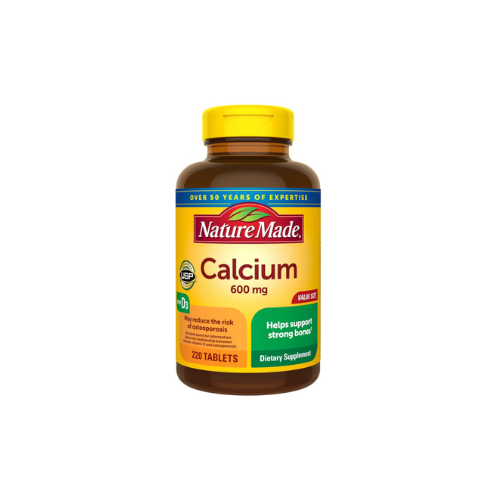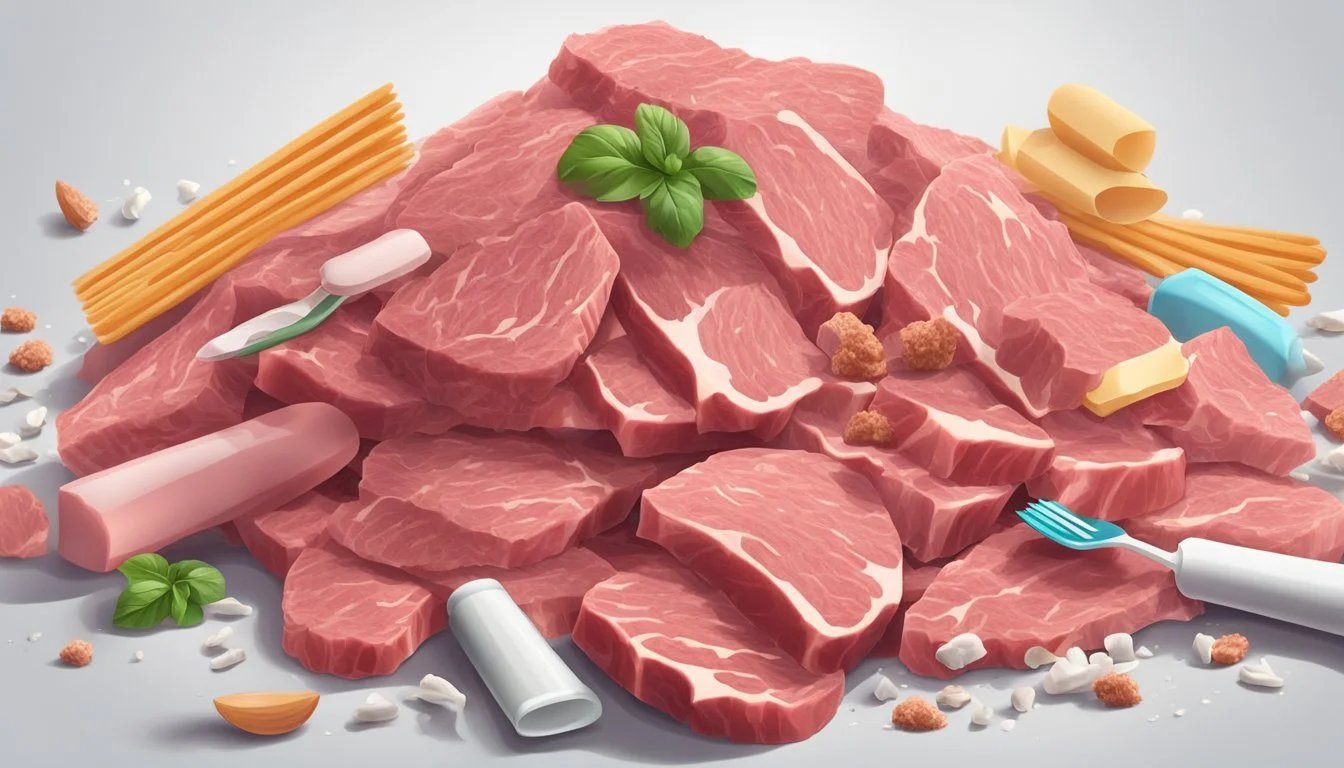Carnivore Diet and the Prevention of Dental Decay
Exploring Oral Health Benefits
The relationship between diet and dental health has been a topic of considerable interest among researchers and health professionals. The carnivore diet, consisting exclusively of animal products and excluding all plant-based foods, may influence dental health due to its unique nutritional profile. Proponents of this dietary approach argue that eliminating processed carbohydrates can significantly reduce the risk of tooth decay and gum disease, as these foods are known to feed the oral microbes responsible for such conditions.
The absence of dietary sugars and refined carbohydrates on a carnivore diet means that the bacteria in the mouth have fewer substrates to ferment, potentially resulting in less acid production and consequently, a lowered incidence of cavities. Furthermore, a meat-rich diet is typically high in certain nutrients, like phosphorus and calcium, that are beneficial for tooth enamel, possibly offering a protective effect against dental erosion. Considering these factors, the carnivore diet presents an interesting angle for examining the prevention of dental decay, demanding a closer look at its effectiveness and the underlying mechanisms at play.
Exploring Carnivore Diet
The Carnivore Diet strictly involves consuming animal products while excluding plant-based foods, with adherence to this diet often accompanied by claims of health benefits, including potential impacts on dental health.
Defining Carnivore Diet
The Carnivore Diet is characterized by an exclusive intake of animal products such as meat, fish, eggs, and organ meats. It is an elimination diet that removes all plant-based foods, processed foods, and carbohydrates, promoting a high intake of animal-based proteins and fats. Some variations allow for limited dairy products, while the strictest form includes only meat, salt, and water.
Historical Perspective
Historically, the emphasis on a carnivorous diet dates back to early human diets that were heavily reliant on hunted animal products. The modern reemergence of interest in meat-centric diets can be seen as a shift away from carbohydrate-heavy eating patterns and recent nutritional trends.
Comparison with Plant-Based and Paleo Diets
The Carnivore Diet is in stark contrast to plant-based diets that focus on fruits, vegetables, grains, and legumes, excluding animal products. Compared to paleo diets, which emphasize whole foods and eliminate processed foods and sugars, the Carnivore Diet goes further by eliminating all plant-derived foods. Paleo diets include both animal products and plant-based foods, promoting balance between meat intake and vegetable consumption.
By maintaining a diet of exclusively animal products, Carnivore Diet followers aim to reduce their intake of dietary elements they believe may cause inflammation or digestive issues associated with plant foods.
Nutritional Profile
The carnivore diet is characterized by its high intake of animal-based foods and exclusion of plant-based foods, impacting the dietary availability of various macronutrients and micronutrients essential for dental health.
Macronutrients in Focus
In the carnivore diet, protein and fat are consumed in high amounts. Protein is essential for maintaining the structural integrity of dental tissues, while fats are necessary for the absorption of fat-soluble vitamins.
Protein: Essential for tooth structure, repair, and bone growth.
Fat: Aids in the absorption of vitamins A, D, E, and K.
Vitamins and Minerals Importance
Vitamins and minerals play a pivotal role in preventing dental decay. For example, Vitamin D is crucial for calcium regulation and Vitamin C is important for gum health.
Vitamin D and Calcium: Vital for the development and maintenance of strong teeth.
Vitamin B12: Important for red blood cell production and neurological function.
Phosphorus: Works with calcium to strengthen teeth and bones.
Make your life easier by ordering vitamin D, calcium, vitamin B12, and vitamin C online; it's just a few clicks away!
Potential Nutrient Deficiencies
Following a strict carnivore diet may lead to nutrient deficiencies due to the absence of plant-based foods, which can affect oral health.
Vitamin C: Usually found in fruits and vegetables; deficiency can lead to gum disease.
Vitamin E: An antioxidant that supports oral tissues; limited in a carnivore diet.
Calcium and Phosphorus: These minerals are found in both plant and animal foods; imbalanced intake can affect dental health.
Micronutrient Intake: The exclusion of plant-based foods could result in a lack of certain micronutrients necessary for maintaining oral health.
It's important to be aware of these potential shortcomings in the diet and consider supplementation or dietary adjustments accordingly.
Avoid the crowds and shop for vitamin E online from the comfort of your home!
Dental Health and Carnivore Diet
The carnivore diet, which primarily consists of meat and animal products, can have a unique impact on dental health. This dietary approach may influence various factors related to oral health, including oral microbiota composition, the prevalence of tooth decay, and the integrity of tooth enamel and saliva quality.
Impact on Oral Microbiome
The oral microbiome is a complex ecosystem in the mouth that plays a critical role in dental health. The carnivore diet alters oral bacteria by reducing the intake of fermentable carbohydrates, which are known to feed harmful bacteria that contribute to plaque buildup. Lower levels of these carbohydrates may encourage a healthier balance of oral microbiota, reducing the risk of gum disease and dental caries.
Role in Tooth Decay Prevention
Tooth decay, or dental caries, occurs when enamel is broken down by acids produced by oral bacteria after consuming carbohydrates. By significantly reducing sugar and carbohydrate intake, individuals on a carnivore diet limit the primary sources of nutrition for cariogenic bacteria like Streptococcus mutans. This can lead to a decrease in acid production, helping to prevent cavities and enamel erosion.
Influences on Saliva and Enamel
Saliva production and quality are essential in maintaining a healthy oral environment as it helps in the natural process of remineralization, which repairs minor enamel erosion. The carnivore diet's high content of minerals such as calcium and phosphorus might benefit both saliva production and the remineralization process, further protecting against enamel erosion. Additionally, the diet's restriction of acidic foods can prevent excessive exposure to acids that may compromise tooth enamel and gum health.
Potential Benefits for Dental Health
The carnivore diet's strict limitation to animal products offers some distinct potential benefits for dental health. These benefits include a reduction in inflammation, a lower incidence of dental caries, and improvements in gum health.
Reduction of Inflammation
Animal products consumed in the carnivore diet are often rich in nutrients that may possess anti-inflammatory properties. For example, omega-3 fatty acids found in fish have been noted for their role in reducing inflammation throughout the body.
Omega-3 Fatty Acids: Found in high amounts in fish, they can help reduce systemic inflammation.
Less inflammation in the body can lead to a healthier oral environment, possibly diminishing the risk of inflammatory oral diseases.
Lower Incidence of Dental Caries
The absence of fermentable carbohydrates in the carnivore diet reduces the fuel for cariogenic bacteria like Streptococcus mutans, which are responsible for dental caries.
No Fermentable Carbohydrates: Without sugars from plants, the bacteria have less substrate to form decay.
This limitation of carbohydrate intake, particularly in the form of simple sugars, plays a role in a potentially lower risk of developing dental caries.
Improvement in Gum Health
A diet devoid of sugar and certain complex carbohydrates might contribute to the maintenance of healthy gums. Inflammation is a key factor in the development of periodontal diseases, and by eliminating dietary sugars, the carnivore diet could support gum health.
Limited Sugars and Carbohydrates: These dietary components are implicated in gum disease when consumed frequently.
By strictly focusing on animal products, an individual might experience fewer gum-related issues compared to diets high in sugars and processed carbohydrates.
Risks and Considerations
While the carnivore diet may have potential benefits for dental health, such as a reduction in cavities due to low sugar intake, it is important for individuals to consider various factors that could have negative implications for their oral health. Awareness and careful management of these factors are crucial for maintaining optimal dental health.
Acidic Foods and Dental Erosion
The carnivore diet may include consumption of acidic foods like dairy products, which can lead to dental erosion. Dental erosion is the loss of enamel caused by direct contact with acids from foods or the stomach. Over time, erosion can result in increased sensitivity and greater risk for cavities due to enamel wear.
Foods potentially contributing to erosion:
Certain dairy products (e.g., hard cheeses)
Animal proteins (when metabolized, can produce acidic by-products)
Biomarkers of Dental Health
Monitoring biomarkers of dental health can help individuals understand how the carnivore diet affects their teeth. Biomarkers such as saliva pH and mineral content, plaque pH, and levels of certain bacteria like Streptococcus mutans can indicate changes in oral health risk. These biomarkers should remain within optimal ranges to prevent dental diseases.
Biomarkers to monitor:
Saliva pH: A neutral to slightly alkaline pH helps maintain enamel health.
Plaque pH: Acidic plaque can demineralize teeth and cause cavities.
Beneficial vs. harmful bacteria balance
Consultation with Dental Professionals
Consulting with dental professionals offers tailored dietary advice for maintaining optimal oral health on the carnivore diet. Dental professionals can provide guidance on managing the consumption of potentially erosive foods and ensuring a balanced oral microbiome. Regular dental check-ups and cleanings are essential for early detection and management of dental issues.
Recommendations from dental professionals may include:
Regular oral hygiene practices
Use of products to minimize acidity in the mouth
Periodic review of dental health biomarkers
Importance of Oral Hygiene Practices
Adherence to strict oral hygiene practices is essential in the prevention of dental decay, especially for individuals on a carnivore diet. These practices help mitigate the absence of certain food groups that may otherwise contribute to oral health.
Regular Dental Check-ups and Cleanings
Regular dental check-ups are crucial as they help identify and address potential issues before they escalate. Dental professionals can provide professional cleanings to remove tartar that cannot be eliminated by brushing and flossing alone, thus preventing the development of caries and gum disease.
Frequency of visits: Typically every 6 months
Services provided:
Examination for cavities
Plaque and tartar removal
Gum disease evaluation
Effective Tooth Brushing and Flossing
Tooth brushing and flossing must be performed correctly to be effective in maintaining oral hygiene. Brushing should be done at least twice daily using fluoride toothpaste to protect against decay, while flossing daily helps remove debris and plaque from areas a toothbrush can't reach.
Suggested brushing technique:
Use a soft-bristled brush
Brush for two minutes
Include all surfaces of the teeth
Flossing essentials:
Use a gentle "rocking" motion
Glide the floss between teeth without snapping
These oral hygiene practices are critical components in preserving dental health on a carnivore diet.
Carnivore Diet and General Health
The carnivore diet, which prioritizes meat and animal products, is often discussed for its impact on weight and chronic health conditions. This high-protein, low-carbohydrate diet influences body composition and may affect cardiovascular health and diabetes risk.
Body Composition and Obesity
The carnivore diet, by its high protein and almost zero-carb nature, could potentially lead to a decrease in body fat percentage. Protein is known for its satiety-inducing effects, which might help in reducing overall calorie consumption. Studies indicate diets high in protein have a correlation with fat loss, largely due to the thermic effect of food and an increase in metabolic rate.
Effects on Cardiovascular and Diabetes Risks
Animal products are rich in saturated fats and cholesterol, which have been controversially linked with cardiovascular diseases (CVD). However, recent research suggests the relationship between saturated fat intake and CVD may not be as clear-cut as once thought. Conversely, the diet's low carbohydrate content may lead to reduced blood glucose levels and improved insulin sensitivity, potentially benefiting those at risk of type 2 diabetes. Blood markers like triglycerides may also improve due to the reduced intake of sugars and refined carbs.
Nutrient Absorption and Digestive Health
The focus on meats in the carnivore diet means a high intake of certain micronutrients such as iron, zinc, and B vitamins, which are readily absorbed in animal form. However, there’s a potential risk for nutrient deficiencies due to the lack of variety, particularly in fiber and certain vitamins found predominantly in plant foods, which could impact digestive health. The absence of dietary fiber might concern those considering the diet's long-term effects on the gut microbiome and digestion.
Dietary Modifications and Alternatives
In the pursuit of dental health through diet, specifically with the carnivore diet, one may consider incorporating select nutrients to bolster oral health. The following subsections provide specific strategies to modify the carnivore diet to potentially prevent dental decay.
Inclusion of Dairy and Omega-3 Rich Foods
Dairy products, such as cheese and ghee, contain calcium and phosphorus which are crucial for tooth remineralization. The inclusion of these foods can be an asset in a carnivore diet to support dental health. Further, Omega-3 rich foods like fish are valued for their anti-inflammatory properties, beneficial for preventing periodontal diseases.
Balancing Carnivore Diet with Other Nutrients
While maintaining a low-carbohydrate diet, it is important to consider the inclusion of all necessary nutrients. Eggs and fish can provide essential vitamins and minerals, supporting overall nutrition. Individuals might also explore a more balanced diet that strategically incorporates low-carb vegetables to maintain optimal dental and general health.
Transitioning from Carnivore Diet
For those transitioning from a strict carnivore diet to a more inclusive dietary pattern, it is advisable to gradually introduce other nutrient-dense foods such as low-carbohydrate vegetables, while continuing to minimize sugar and refined food consumption to protect against dental decay. Moving towards a ketogenic diet might serve as an intermediary step, maintaining low carbohydrate intake while diversifying one's nutritional profile.
Carnivore Diet in Different Populations
The carnivore diet, which consists exclusively of animal products, manifests varied adaptations and effects across different ages and cultural landscapes. The limited inclusion of plants may intersect with systemic reviews on diet and nutrition and public health implications.
Adaptation in Adults Versus Children
Adults may adapt to a carnivore diet differently than children due to metabolic and physiological discrepancies. For adults, the shift to a diet high in protein and fat often aims at specific health outcomes or aligns with personal dietary philosophies. A reliance on meats, fish, eggs, and low-lactose dairy products can offer a significant intake of nutrients essential for adult health, such as vitamin B12 and omega-3 fatty acids. In contrast, children require a balanced intake of nutrients for growth and development, where a diet limited to animal products might restrict nutrient diversity necessary for their growth, such as dietary fiber and certain vitamins.
Cultural and Geographic Variations in Diet
Cultural and geographic factors greatly influence the adoption of the carnivore diet. In some Arctic regions, indigenous populations have traditionally maintained a diet largely composed of mammals like the polar bear and fish, due to scarce vegetation. The diet of these populations is a consequence of necessity and demonstrates a historical adaptation to a carnivorous eating pattern out of survival. On the other hand, in regions with abundant plant diversity, insects and plants often make up a larger portion of traditional diets. Systematic reviews of diet and nutrition highlight a correlation between available local resources and the prevalence of animal-centric diets, reflecting the adaptability of human populations to their environments.
Addressing Dental Decay Through Diet
Dental decay is a multifactorial disease influenced by diet, specifically the intake of sugars and fermentable carbohydrates. The following subsection discusses the implications such substances have on oral health.
Role of Sugars and Fermentable Carbohydrates
Sugars and fermentable carbohydrates are the primary dietary contributors to dental decay. They provide a readily available energy source for oral bacteria, such as Streptococcus mutans, fostering plaque formation. When plaque accumulates on tooth surfaces, it creates an environment where these bacteria can produce acids.
Sucrose, often found in refined sugars, is particularly potent in this process. As the most common dietary sugar, it has been deemed the most cariogenic carbohydrate—meaning it has a high potential to cause dental caries.
To elaborate, here's how the process usually unfolds:
Consumption: When an individual consumes foods containing sugars and fermentable carbohydrates like sucrose or other added sugars, these substrates adhere to the teeth.
Bacterial Metabolism: Oral bacteria metabolize these sugars, leading to acid production.
Enamel Demineralization: The acids lower the pH in the mouth, resulting in demineralization of the tooth enamel.
Moreover, repeated exposure to such carbohydrates, especially when consumed in between meals, increases the risk of both tooth decay and gum disease as it does not allow saliva to neutralize the acidic environment, leading to sustained acid attacks on enamel.
Beyond sugars, starchy foods that are refined or processed can also contribute to plaque buildup and subsequent dental issues. They break down into fermentable carbohydrates, following a similar pattern of decay as sugary foods, albeit to a lesser extent.
Therefore, strategies that limit sugar intake, particularly from sucrose and other added sugars, can be effective in preventing tooth decay and maintaining optimal oral health. The Carnivore Diet restricts the intake of plant-based foods, including those rich in fermentable carbohydrates, which might offer an alternative approach to managing dental decay, although further research is necessary to fully understand its long-term impacts on overall health.
Concluding Remarks
In the sphere of dental health, the carnivore diet has garnered attention for its potential role in preventing tooth decay. A shift to a diet high in protein and fat, and devoid of processed carbohydrates, influences oral bacteria. Without carbohydrates, these bacteria have fewer resources to thrive and cause decay.
Nutrition is pivotal for optimal oral health. The carnivore diet's exclusion of sugar and fermentable carbohydrates—which are primary culprits in promoting dental cavities—parallels public health recommendations to reduce these foods for better dental outcomes.
Furthermore, maintaining oral hygiene is a cornerstone of dental health, regardless of dietary choices. Daily practices such as brushing and flossing remain essential to prevent disease, and perhaps even more so on a carnivore diet to manage any potential risks associated with high protein intake, like an increase in oral acidity or plaque.
While individual responses to diet vary, a balanced approach that includes consideration of all aspects of health is crucial. People interested in the carnivore diet for dental health should consult dental and medical professionals to tailor advice to their personal needs, incorporating comprehensive strategies for achieving and maintaining oral wellness.












